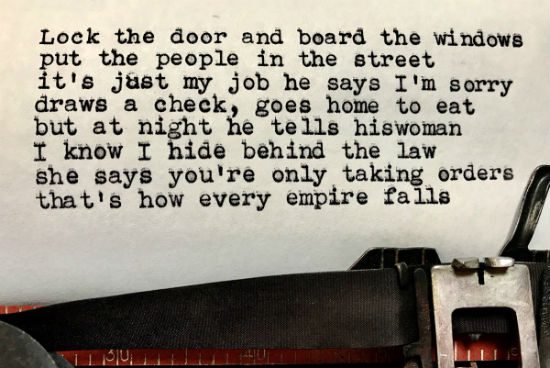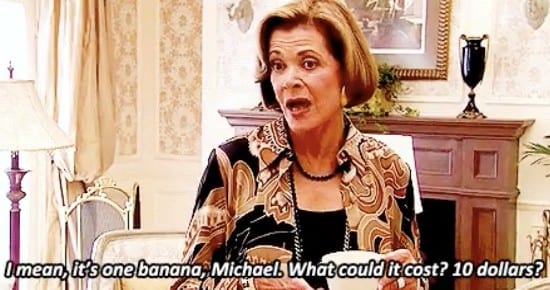• Katelyn Beaty writes for The New Yorker about last week’s hand-wringing “evangelical consultation” at Wheaton College. It is all utterly, horribly familiar:
The younger participants argued that what evangelicals need isn’t a kinder, gentler faith but a bolder one that speaks out against injustice and stands with the vulnerable. Gabriel Salguero denounced what he described as the movement’s “idolatry of safety.” He added, “We have to change our tone, yes. I submit that silence is a tone that speaks volumes.”
… Several younger speakers urged that the statement had to include a tone of repentance for complicity in racism and sexism. Others in the room balked. One longtime leader of an evangelical umbrella group said that he had already received calls from donors for merely attending the meeting, and that asking them to repent for racism would be seen as too political. …
Last Thursday, it was confirmed that no statement would be released. Instead, a press release was issued stating that an “honest dialogue about the current state of American evangelicalism” and its future had taken place. …
Without a statement, and with the bewildering skittishness about getting political, my time at Wheaton left me feeling deeply unsettled about the moral and political fortitude of my spiritual community in the era of Trump and beyond.
I’ve been to a half-dozen meetings just like this — with many of the same folks gathered there or with their predecessors. I took minutes and helped to draft several such “statements” — some of which, like this one, were rejected, some were watered down beyond recognition, and some spewed forth as press-release manifestos with long lists of signatories.
Not sure any of that mattered since, obviously, we’re still in the exact same place we were before I was even born — back when Carl Henry uneasily spiked Frank Gabelein’s reporting from Selma.
“He had already received calls from donors for merely attending the meeting, and that asking them to repent for racism would be seen as too political.” That sentence should be carved on the tombstone of white evangelicalism.
Let the dead bury their dead.

• The dim, Greenwaldian dismissal of Russian interference in American democracy and of Putin’s influence on the Trump administration portrays concern about this as some kind of Neo-McCarthyism — a revival of Cold War-era red-baiting. That’s dumb for a host of reasons, the largest of which is that 21st-century Russia is not “red.” It’s not socialist. It’s a criminal operation.
For a good quick overview of that, see Karen Dawisha’s obituary:
Her 2014 book, Putin’s Kleptocracy – Who Owns Russia?, is a definitive account of how Russia’s president and his friends grabbed and consolidated power. Along the way they became among the richest people on the planet, and the beneficiaries of what Dawisha called “a kleptocratic tribute system”.
Putin never had any intention of embracing western-style democracy, she wrote. Instead, after inheriting power in 2000 from Boris Yeltsin, he knowingly took Russia down an autocratic path. Putin set himself up as the head of a mafia-like cabal. It looted the state and its natural resources.
Stealing was done under the cover of restoring “Russian greatness”. There was “massive predation”, on a scale not seen since the tsars. Risk was nationalized and profit privatized. A new neo-feudal class featuring about 100 billionaires presided over a deeply unequal economy.
… Some political scientists disagreed with her depiction of Russia as a thoroughly criminalized entity. They acknowledged the country was a mafia state, but detected countervailing tendencies. Dawisha initially believed that Putin was stumbling towards democracy, the mainstream view, until her research turned up the president’s multiple connections to organized crime.
The biggest scandal is not the extent to which Trump is “colluding” with Putin, but the myriad ways he’s attempting to emulate him.
• “The solution to crappy jobs is to make work better and more dignified.” I’m with Erik Loomis on guaranteed employment. (So was John Paul II.) He’s right that this could, and should, be a complement to any plans for universal basic income. A decent job for decent pay should be the right of everyone who desires and is able to work one.
I’d also point out that huge aspects of our basic civilization were built thanks to New Deal programs that guaranteed work for the jobless. That basic infrastructure — physical and cultural — has been eroding due to generations of deferred maintenance. During the Depression, this country had work that needed doing and people who desperately wanted and needed meaningful work to do. It was, to borrow a phrase from Wendell Berry, a solution neatly divided into two problems. We still have both of those problems.
A Jobs Guarantee is also part of my stock response to anyone anywhere talking about “work requirements.” If you’re requiring work, then you’d damn well better also be guaranteeing access to it. Otherwise you’re an absurd, Kafkaesque fool and you don’t deserve anyone’s respect and attention.
• The title for this post comes from R.B. Morris’ song, covered here by John Prine:

















